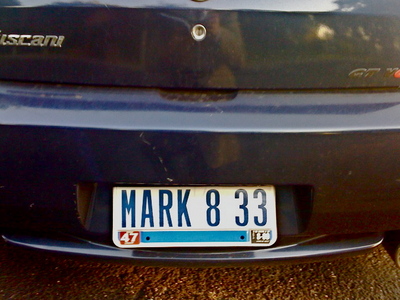Could Flannery O’Connor have invented Don Draper?
“Mad Men” employs the same creative device Flannery O’Connor used. It radically resets a character or situation so that readers or viewers see themselves from a previously unknown vantage point. O’Connor did this geographically by exploiting her native, rural South–strange territory to many of us. Matthew Weiner, the creator of “Mad Men” and a writer for the last three seasons of “The Sopranos,” accomplishes the same through temporal dislocation. He takes us back to the early 1960s and, with the aid of a half-century of hindsight, we see ourselves with new eyes…
…The danger of the temporal dislocation of “Mad Men” is that so many years have passed since the 1960s that viewers no longer recognize themselves in the insecure men and women who bed each other in hotel rooms and commit rape in corporate boardrooms. Do career women today feel themselves more secure at work than Peggy Olsen does? Is the emotionally suffocating marriage of Don and Betty Draper a relic of the past? “Mad Men” is a morality play, and Don Draper is an everyman. Even his identity is borrowed from a dead comrade of the Korean War. As brilliantly played by Jon Hamm, Draper is reminiscent of Walker Percy’s oft-repeated protagonist, a walking wound that no philandering can cure, here transplanted from New Orleans to Ossining, N.Y., the Draper suburban home. The self-alienation that expresses itself in perfervid promiscuity is not a thing of the past.
Both O’Connor’s fiction and “Mad Men” can be received without any shock of grace. (Students are often surprised to learn that O’Connor intended her stories to be all about the action of grace.) Some read them simply as macabre stories without a moral. Not everyone sees the morality tale implicit in the saga of Sterling Cooper. Surely there are viewers who wish they could be Don Draper, who don’t recognize the soul-sadness stirred into his martinis. Hollow men have hollow dreams. It takes a lot to see grace at work in territory held largely by the devil. The same might be said of time, as O’Connor might put it, when Satan winds the springs.


